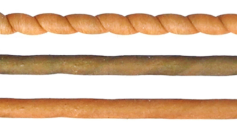TECH & INNOVATION

Unwinding is Now a Scientific Way to Chill

Self-Sterilizing Graphene Filter Effectively Eliminates Airborne Bacteria
Space X Starship: The Visionary of Elon Musk

How Lazy Coders Make Apps: The Security Risks

3-D printed prototypes to explore Saturn's moons

Scientists Have Just Implanted False Memories in Birds

How to Use Communication Devices for Getting Attention from the Communities

AI in Medical Diagnosis: Just as Good as Human Doctors?

Spacecraft Hayabusa 2 Landed on Asteroid Ryugu

NASA-Funded Research Leads to the Development of Salt-Based Propellant

WiFi Signals Can Now Be Used to Identify Individuals

Nuclear Reactors Come With Microhardness Three Times More Than Its Components

Impact of Machine and Human Collaboration via Artificial Intelligence

Inventing the World's Strongest Silver
Most Popular

Catch The Blood Moon: Where and When to See the Total Lunar Eclipse on March 3, 2026

Rare Blood Moon Lunar Eclipse Illuminates the Skies Over North America

The Neuroscience of Habit Formation: What Behavior Science Reveals About How the Brain Builds Routines

Carbon Capture to Fuel: Innovative Catalysts Transforming CO₂ into Clean Energy





